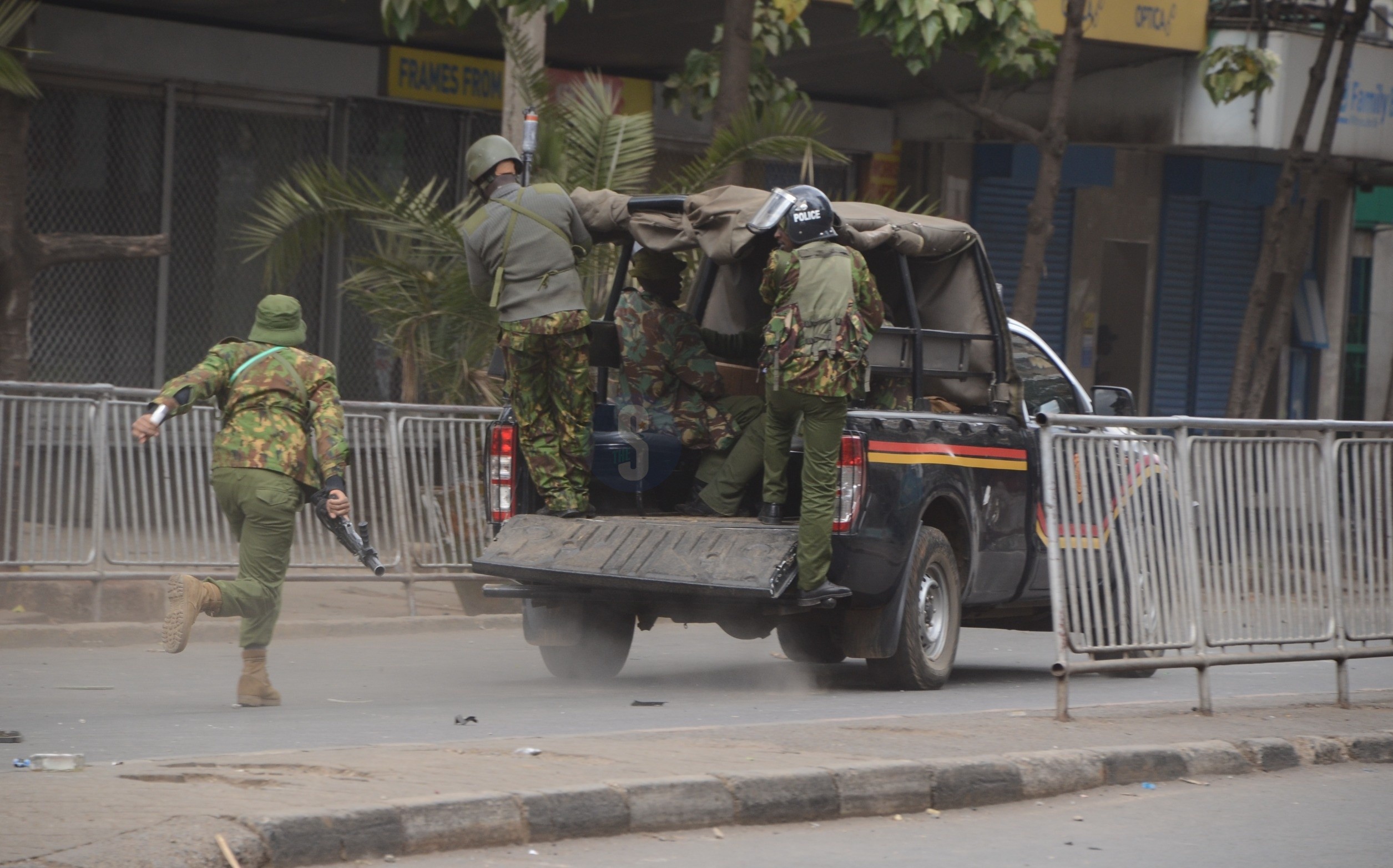 A security officer runs after a police Land Cruiser during demonstrations over the death of the late Albert Ojwang, June 17, 2025. /DOUGLAS OKIDDY
A security officer runs after a police Land Cruiser during demonstrations over the death of the late Albert Ojwang, June 17, 2025. /DOUGLAS OKIDDYA police reform lobby has issued a stern public safety advisory to law enforcement officers as nationwide outrage grows over the death of blogger and teacher Albert Ojwang in police custody.
Ojwang died on June 8 while being held at Central police station in Nairobi.
His death has sparked a wave of protests across the city, with demonstrators demanding accountability and justice.
Ojwang had allegedly posted defamatory content online targeting Deputy Inspector General of Police Eliud Lagat.
Lagat stepped aside on Monday to allow for impartial investigations into the matter.
As tensions escalated in the capital, a protester was shot by police along Moi Avenue near Imenti House, sparking widespread condemnation from Kenyans and human rights groups, who accused the police of responding to peaceful demonstrations with excessive force.
In response to the mounting unrest, the Police Reforms Working Group–Kenya (PRWG-K) issued a public advisory warning officers to adhere strictly to the constitution and international human rights standards.
PRWG-K brings together 20 national and international human rights organizations that seek to advocate for reforms within the National Police Service (NPS).
The group reminded officers that the right to peaceful assembly is protected under Article 37 of the constitution.
It stressed that notifications to police by organisers do not amount to a request for permission but are meant only for coordinating public safety.
"Since June 25, 2024, the courts have also pronounced themselves on what is acceptable police conduct during the exercise of people's right to peaceful assembly. Commanders and senior officers must issue lawful orders and ensure those under their command respect human rights," the group said.
It directed police to avoid using lethal or less-lethal force unless it is lawful, necessary, and proportionate.
The group further urged officers to refrain from deploying tear gas, rubber bullets, water cannons, or live ammunition against peaceful demonstrators.
The use of force in residential areas, near schools or medical facilities, was discouraged.
"Commanders are advised not to violate court orders related to the deployment of plainclothes officers who disguise their faces with masks and without visible name tags and badge numbers," PRWG-K said, referencing recent court orders banning the deployment of unmarked personnel.
The advisory further called for full protection of journalists and medical workers and warned against the arrest of peaceful protesters.
It said those arrested must be informed of the charges against them, granted access to legal counsel, and brought before court within 24 hours.
"Police must distinguish between violent criminals and peaceful protesters as they carry out arrests. Peaceful protesters should not be arrested."
The group also called for immediate reporting of deaths in custody to the Independent Policing Oversight Authority (Ipoa) via toll-free number 1559.
While issuing the advisory, the PRWG-K cited relevant constitutional and legal provisions, including recent High Court rulings that outlawed the use of excessive force and the use of police officers in disguise.
Civil society organisations have decried Ojwang’s death as a state-sanctioned killing and are demanding a full public inquest.
"Police must cooperate with Ipoa and KNCHR in investigations and hand over all weapons, ballistics, crime-scene and forensic evidence," the group said.
PRWG-K shared emergency helplines to provide legal and medical assistance to affected protesters.
They include 0739-567-483 for emergency medical during protests and 0706-162-795 or 0800-721-401 for Independent Medico-Legal Unit (Imlu).
Protests are expected to continue in Nairobi and other towns in the coming days, fueled by the city shooting.
As public pressure builds, questions now turn to whether the government will take meaningful action or allow the cycle of abuse to continue.















